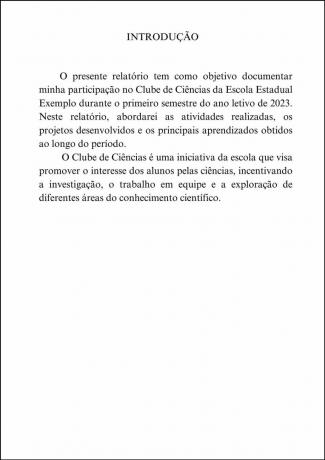A question mark is a punctuation mark used at the end of a sentence. interrogative sentence, indicating that the sentence is a question. It is represented by the graphic sign "?".
Example sentences with question mark:
"What would you like to do this weekend?"
"What's your favorite dish?"
"Where do you plan on spending your next vacation?"
"Who is the author of the book you are reading?"
"Why are you so excited today?"
"How long do you plan on staying at the party?"
"Have you made a reservation for dinner tomorrow?"
"How do you feel about the new project?"
"When is your birthday?"
"Do you agree with the decision made by the team?"
This punctuation mark determines the reading of the sentence as a question or doubt. Without question marks, the sentence, instead of being interrogative, becomes affirmative.
Uses of the question mark
Direct and indirect interrogative sentences
There are two types of interrogative sentences: direct and indirect.
To the direct interrogative sentences are those that use a Question Mark
at the end. Express doubt and search for an answer. In oral communication, it is marked by rising intonation at the end of the sentence.Examples:
"What would you like to do next holiday?"
"Who will be the keynote speaker at the event?"
"Have you tried this new cake recipe yet?"
Phrases indirect interrogatives are those that do not use question marks. It occurs in periods composed of subordination, in which the verb of the main clause expresses lack of knowledge or desire to obtain information.
Examples:
"I wonder what you're doing next holiday."
"I don't know who will be the main speaker at the event."
"I want to know if you've tried this new cake recipe yet."
Question mark and exclamation mark together (?!)
The combined use of the exclamation mark and question mark is common. By adding the exclamation mark after the question mark, we express doubt and at the same time, surprise.
This combination intensifies the emotional charge of the text, being more used in informal contexts.
Examples:
"What are you doing here?!
"And now?!"
"Huh?!"
Question mark in other languages
The question mark is used in all forms of Neo-Latin writing, that is, in languages derived from Latin. However, depending on the language, it may undergo modifications.
This is the case in Spanish or Castilian, in which two question marks are used, one at the beginning and one at the end of the sentence, the first being inverted.
Examples:
"Where is the book?"
"Do you want coffee?"
"What is your favorite color?"
Origin of the question mark
There is no consensus on the origin of this punctuation mark. However, the most widely used explanation for the origin of the question mark suggests that it derives from the word quaestio ("question" in Latin), positioned at the end of a sentence to indicate a question.
Over time, this word would have been shortened, initially to qo and then to a lowercase "q" over an "o". These abbreviations gave rise to the question mark we currently use.
Bibliography:
- BECHARA, Evanildo. School Grammar of the Portuguese Language. Rio de Janeiro: Lucerna, 2009.
- CUNHA, Celso; CINTRA, Lindley. New grammar of contemporary Portuguese. Rio de Janeiro, Lexikon, 2013.
See too:
- Punctuation marks
- Pronoun
- Adjective
- Adjective Examples
- Preposition
- Conjunction
Meanings: more than a simple encyclopedia. A simple encyclopedia.


